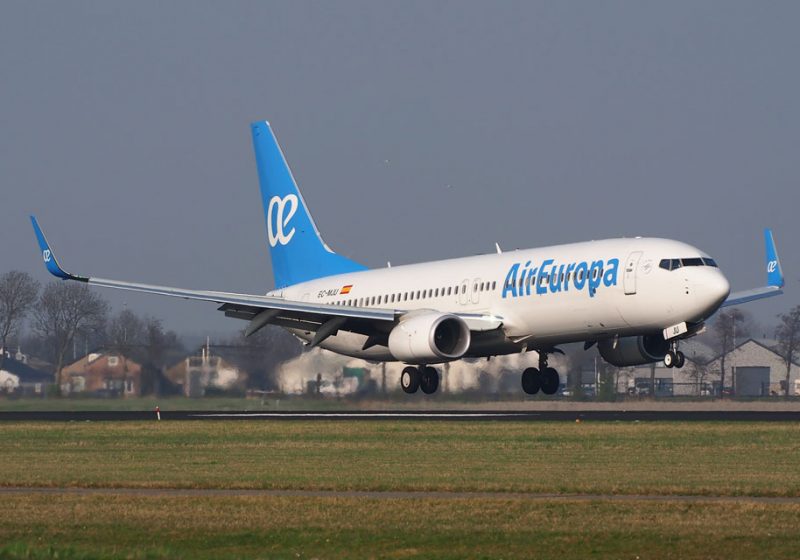Introduction
With the EU elections fast approaching, we have taken some time to consider our purpose and mission for the next five-year mandate of the EU. From the consultation with our members in 2023, sustainability and digital transformation have emerged as the overwhelming thematic priorities for our work.
Businesses want to travel sustainably and business travel buyers across Europe accept their responsibility to reduce GHG emissions. Should business travel stand a chance to contribute its fair share to achieving the EU’s target of reducing net GHG emissions by at least 55% by 2030, significant steps to improve the access to streamlined, accurate and comparable data on travel services’ CO2 emissions are urgently needed.
At the same time, sustainability and efficiency gains cannot be unlocked without a full digital transformation of business travel. Today, the realm of business travel remains entangled in excessive paperwork and administrative burden. However, a significant shift is underway as business travel buyers and users throughout Europe transition from a partially digitalized landscape to a comprehensive digital transformation.
In order to achieve sustainability and digital transformation in business travel, resilient and reliable mobility must be ensured, within and across borders. Therefore, it goes without saying that investment in physical traffic routes (e.g. rail system) is essential.
As this year is an election year, it presents a great opportunity to reflect on the successes of the last mandate, while setting the scene for the next. That is why we decided to start the year with a series of workshops on the most important legislative files that we would like to see continued and successfully concluded in the next mandate. We discuss these with Members of the European Parliament (MEP), while also inviting them to share their expectations on the future agenda of the European Parliament and the European Commission following the EU elections.
With promoting business travel sustainability and digital transformation as our goals for the next mandate, we anticipate devoting our efforts, already starting in the second half of 2024, first to getting to know the new EU officials and politicians, informing and discussing their goals for the new mandate and then working alongside them to advocate for measures that support responsible and resilient business travel practices.
Our deliverables for the first half of 2024
BT4Europe works to support the European institutions in providing the necessary regulatory framework for enabling the business travel industry to reach its sustainability and digital transformation goals. To that end, during the first half of 2024, we will focus our efforts on facilitating discussions between Members of the European Parliament (MEPs) and industry on three important legislative initiatives: CountEmissions EU, Multimodal Digital Mobility Services (MDMS) and the A1 Form, included in the Regulation 883/2004 on the coordination of social security systems.
BT4Europe is interested to hear MEPs’ views on business travel, and their expectations on the future agenda of the European Parliament and the European Commission following elections in 2024. We are interested in the personal political agenda of the MEPs invited, and their view on the theme of the webinar. Also, we allow for questions from the online live audience.
- MDMS
The first workshop took place on 12 March and focused on the European Commission’s delayed proposal on Multimodal Digital Services (MDMS), with the MEP who has been leading the campaign for the MDMS proposal, Jakop Dalunde.
BT4Europe believes that we need to leverage the digital transformation in order to facilitate multimodal travel and passenger protection. Additionally, now more than ever, we need modern mobility concepts to encourage the shift to more sustainable modes of transport and drive forward the decarbonisation of the transport sector. The MDMS proposal should provide the opportunity to achieve these goals.
Companies want to encourage the switch to public transport. Apart from the cost savings, they are increasingly keen to encourage the use of sustainable forms of transport. So, if we could make the use of different modes of transport attractive and effective for business travellers, this would make a vital contribution to the digital and sustainable transformation of mobility. This is also supported by the fact that business travellers are generally open to digital applications. They are more likely than other groups to use such tools if it helps them organise their daily work more efficiently.
The webinar provided important pointers as to how we will continue to work together with MEPs to ensure a robust proposal is delivered early in the new EU mandate. The recorded session is now available on the BT4Europe Youtube channel. Visit our Youtube channel to gain valuable insights and stay updated on the latest developments on multimodal cross-border travel.
- Digital transformation
Digital transformation will be the topic for our second workshop, taking place on 25 April, together with guest speakers MEP Dennis Radtke.
This session will explore crucial discussions surrounding the seamless facilitation of cross-border travel, spotlighting the indispensable role of digital IDs and the urgent need to exempt business travel from A1 requirement. As businesses navigate the evolving landscape of business travel, understanding the nuances of digital transformation becomes essential.
- Sustainability
The third discussion we will organize will focus on the interplay between sustainability & digital transformation, with a focus on CountEmissions EU.
BT4Europe welcomed CountEmissions EU initiative aiming to create a common framework to calculate and report transport related GHG emissions, as a vital first step, but called for more ambition. We are closely following the work of the European Parliament on this file, and support amendments that aim to make the use of primary data for the calculation of GHG emissions mandatory where possible and enforce the display of this information via data intermediaries. Additionally, the integration of the «location-based approach» for the calculation of default values for GHG emissions intensity will ensure more precise calculations when primary data is not available.
However, there are still areas that need work, such as extending the scope of the proposal to cover accommodation and MICE (Meetings, Incentives, Conferences, Exhibitions) and the use of primary and secondary data.
Achieving sustainability and digital transformation in business travel
Looking ahead beyond the first six months of this year, we have put together an overview of the necessary actions to achieve sustainability and digital transformation in business travel, our thematic priorities for 2024-2029.
Looking at the European regulatory framework, we will extend our focus to other relevant initiatives that would impact business travel sustainability and digital transformation, to include initiatives such as the National Emission Reduction Commitments Directive, Carbon Removal Certification Framework and Corporate Sustainability Reporting Directive (CSRD).
In terms of advocacy and engagement with the EU institutions we anticipate devoting our efforts, already starting in the second half of 2024, first to getting to know the new EU officials and politicians, informing and discussing their goals for the new mandate and then working alongside them to advocate for measures that support responsible and resilient business travel practices.
Thematic priorities for 2024 – 2029
Business travel is a key function for companies, NGOs and public administration across all European countries and globally. About 2 million European employers send 34 million business travellers on 300 million business trips every year. The economic impact is substantial. Europe spends 120 billion Europe on business travel every year.
At BT4Europe, our work for the 2024-2029 EU mandate will be guided by two important themes: sustainability and digital transformation.
The basic requirements in order to achieve sustainability in business travel are:
- CO2 Footprint to become as important as price.
- Visibility of travel services’ CO2 footprint at the point of sale.
- Travel distribution and booking systems should include all means of transportation.
- CO2 Reports for travel services to become a customer right.
- CO2 emissions reports – obligatory for all travel service providers and free of charge.
- Financial support for the travel industry to speed up the reporting solutions.
- Non-Financial Reporting for all companies.
- Common Framework for CO2 Emissions calculation.
- To enable comparison of travel services.
- To make the sustainability related improvement of travel services visible.
We advocate for the collaborative support of both the business travel industry and the European Union to facilitate and bolster our initiatives aimed at simplifying, cost-effectively streamlining, and enhancing the sustainability of business travel processes:
- Fully digitize travel documents and checkpoints
- Digitalize all documents required to travel such as:
- People identification: ID card, passport
- Trip tickets: rail, airline, ground transportation
- Legal authorizations: visas, A1 form allowing to swiftly pass automated checkpoints (security, immigration, boarding)
- Enable seamless End to End Multimodality across Europe
- Ensure the Multimodal Mobility Digital Services initiative (MDMS) fully integrates booking, payment and ticketing processes, across all forms of transportation (air, rail and road, private and public) and in particular integrating cross border travel and last mile journeys to allow more sustainable and cost-effective business trips.
- Enforce end-to-end Passenger Rights protection
- Seize the upcoming review of EU passenger rights regulations to establish a straightforward, fully integrated, and digital end-to-end protection for passenger rights in the realm of (MDMS) multimodal travel.
- Ensure all relevant existing and planned EU initiatives in the new mandate contribute to business travel sustainability and digitalisation.




